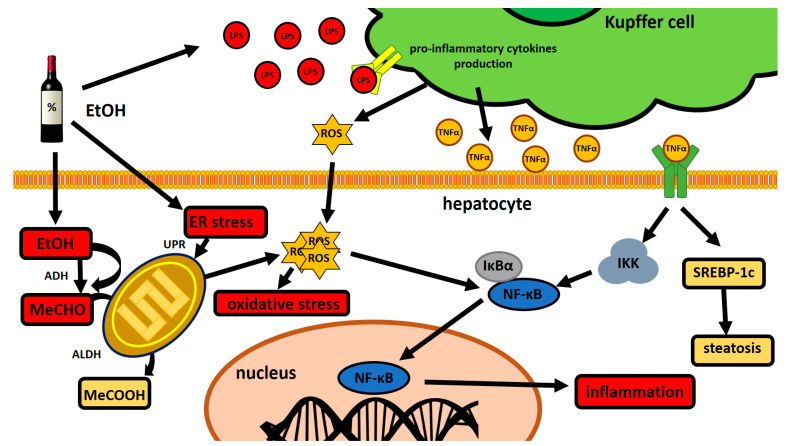Figure 1.
A schematic representation of the alcohol-related mechanism of liver injury during prolonged EtOH consumption. MeCHO causes an excessive release of reactive oxygen species (ROS) which leads to cellular damage and induction of the NF-κB pro-inflammatory pathway. Additionally, alcohol consumption results in gut permeability, which concludes in Kupffer cells stimulation by, i.e., endotoxins (LPS), which stimulates NF-κB-induced inflammation even further and also favors fatty acids overproduction. ADH—alcohol dehydrogenase, ALDH—aldehyde dehydrogenase, ER—endoplasmic reticulum, EtOH—ethanol, IKK—inhibitor of nuclear factor kappa B kinase complex, IκBα—inhibitor of nuclear factor kappa B alpha, LPS—lipopolysaccharide, MeCHO—acetaldehyde, MeCOOH—acetic acid, NF-κB—nuclear factor kappa-light-chain-enhancer of activated B cells, ROS—reactive oxygen species, SREBP-1c—sterol regulatory element-binding protein (for further insight on SREBP-1c, please refer to Section 6.1), TNFR—TNF receptor, TNFα—tumor necrosis factor alpha, UPR—unfolded protein response.

